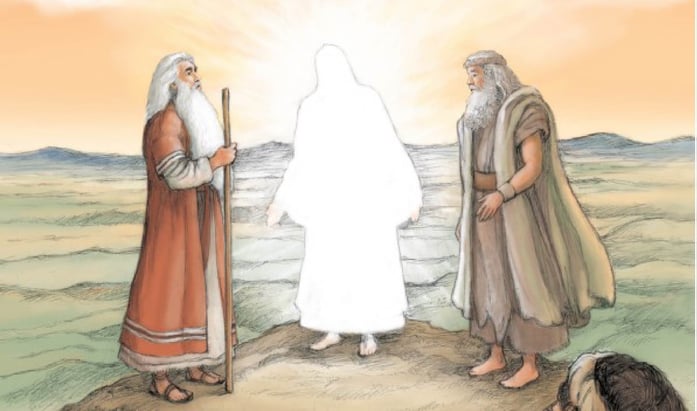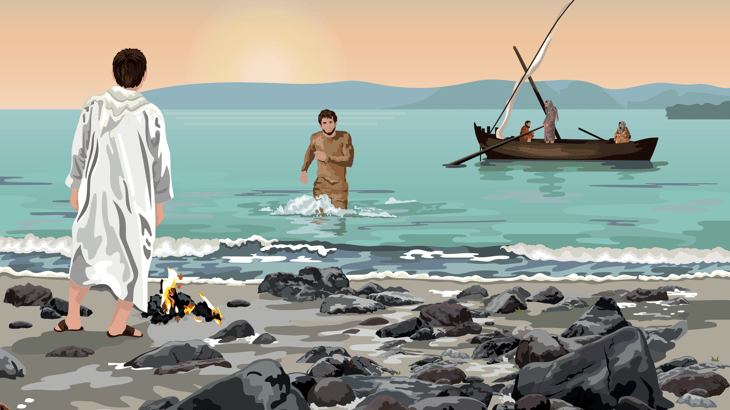Recent Posts by Jennifer Gross
Fruit of the Spirit: Love Comes First
At youth group, the teens in attendance were engaged in a very lively discussion, during which, my daughter said something slightly off the mark theologically. I immediately corrected and expanded on her words—matter-of-factly, I thought. I was one of the youth leaders, after all. It was my duty to make sure the kids understood everything correctly. The discussion continued, but without my daughter. Her head went down, and she said nothing else.
When we got home, she turned to me, “You made fun of me!”
Heavenly Peace During Advent and Christmas
During Advent and Christmas, we hear about peace. We read Isaiah’s names for the Messiah, including “Prince of Peace.” In Jesus’ birth story, recorded in Luke, the heavenly hosts say, “Glory to God in the highest, and on earth peace among those with whom He is pleased!” (Luke 2:14). We sing, “Sleep in heavenly peace” in the hymn “Silent Night, Holy Night” (LSB 363:1).
Holding On to God’s Word and God’s People
In Exodus 32:15, Moses descends from Mount Sinai after spending forty days in God’s presence. In his hands are two “tablets of the testimony” (Exodus 32:15) with the words of God written on the front and back. Verse 16 emphasizes how holy the tablets are: “The tablets were the work of God, and the writing was the writing of God, engraved on the tablets” (Exodus 32:16).
From Clueless to Fearless: Learning from Peter
After reading Mark’s account of the transfiguration, I asked the teenagers in Sunday School if they had any comments or questions. A fifteen-year-old girl hesitantly raised her hand. “Um, I don’t know how to say this, but the disciples were . . . not smart.” The other kids laughed and agreed, and we spent a few minutes talking about the clueless disciples.
Worth the Cost: Follow Jesus through Suffering
We hear some Scripture passages more than others over the course of our Christian lives, especially the Gospel stories surrounding Jesus’s birth, death, and resurrection. One of these is the account of the resurrected Jesus appearing to the disciples, cooking them fish on the beach, and restoring His relationship with Simon Peter after Peter’s denial.
Never Too Late for Forgiveness
The epic saga of Joseph and his brothers spans thirteen chapters of the Book of Genesis, and most Christians are familiar with it. Joseph’s brothers sell him into slavery, where he suffers and then rises to power in Egypt. A famine forces his brothers to come to him in search of grain; and after an extensive back-and-forth to assess if his brothers have changed, Joseph reveals his identity and forgives them. It’s a glorious picture of how God can work through even the worst betrayal and suffering to bring about salvation (in this case, literal, physical salvation from starvation) and healed relationships.
The Living Water of Forgiveness
I’ve been thinking about tone of voice in the Bible. Anyone who texts, emails, or engages on social media is familiar with the challenge of conveying tone through words alone. We often add emojis to make sure our readers understand.
Great Expectations for Healing
Sometimes, I read a familiar Bible passage or story and it comes alive in a new way. This happened recently with the story of Naaman in 2 Kings 5, which I recall from childhood Sunday School as being a simple story of the faith of a servant girl leading to a man being healed of leprosy. As I read it as an adult, however, I can see that it gives us a dramatic account of how our expectations and God’s actions can collide.
Listening to the Lord in the Wilderness
I learned recently that the Hebrew word that is translated to “wilderness” in the Old Testament, midbar, comes from a root word that means “word” or “to speak.” One common understanding of this connection is that the wilderness is where you go to hear the voice of God.
Qualities of a “Good” Christian
“Let’s go, push yourself!” the exercise instructor yelled. “We didn’t come here to be mediocre!” I laughed, or possibly just grimaced, and clumsily attempted the physical feat she demonstrated so easily. After class, I joked that given my age and lifelong lack of coordination, I aspire to be mediocre.




















